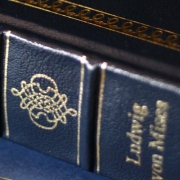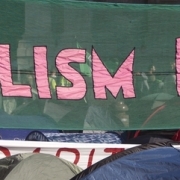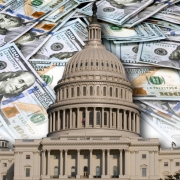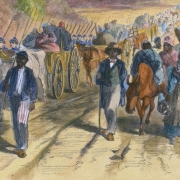The Austrian Champion of Laissez-Faire Human Action and the Micro-Economic Decisions of Individuals
All Poetic Justice Warriors share common character traits, not the least of which is that they are magnificent exponents for human action. But perhaps no one has lionized the ideal of human action more than the Austrian economist, Ludwig von Mises, whose signature publication is his book, Human Action. As economics professor Peter Leeson says about Human Action, “In my opinion it is the most important book on economics of the twentieth century and quite possibly the most important book in economics, period.”
Human Action
Human Action is Mises’ signature achievement. In it, he single-handedly constructs and preserves the so-called Austrian School of free market individual economics in the face of Communism, Socialism, Interventionism and Keynesianism. And economics professor Hans Sennholz continues:
In the world of economic literature, Human Action now holds the position which Adam Smith’s Wealth of Nations used to occupy. It is the science of every kind of human action. It applies to all ends and all means, both material and ideal, the sublime and the base, the noble and ignoble.
In it, Mises built on the foundations of classical and Austrian school economists to expand the science by presenting a general theory of individual choice and individual preference in all human action. But the best megaphone for Mises’ contribution to Western Civilization is Mises himself:
We conceive what incentive induced people not to consider themselves simply as rivals in a struggle for the appropriation of the limited supply of means of subsistence made available by nature. The factor that brought about primitive society and daily works toward its progressive intensification is human action that is animated by the insight into the higher productivity of labor achieved under the division of labor.
Economist Murray Rothbard adds to Mises insight: “Human Action was indeed about everything. The book was a revelation to those of us drenched in modern economics. It provided an entirely new and superb structure of correct economic methodology and theory.” Or as Mises explains, “Economics is life.”
A Life of Reason, Purpose, and Pride
Human Action was published in America in 1949, and like any monumental achievement, it was the result of a lifetime of work and challenges. In his treatise published in 1927 titled Liberalism, Mises compared the instability caused by government economic intervention, the impossibility of socialism, and the ideal of laissez-faire capitalism. And Mises knew of which he spoke, for in the inflationary aftermath of World War I, he was the economic advisor to the Marxist Socialist leader of Austria, Otto Bauer, and Mises dissuaded Bauer from joining the Bolshevik cause that he and his wife were so enamored with. As Mises later put it:
Everyone was so convinced of the inevitability of the coming Bolshevism that they were intent merely on securing for themselves a favorable position in the new order. The Catholic Church and its follower, the Christian Social Party, were ready to welcome Bolshevism with the same ardor that the archbishops twenty years later welcomed Nazism. Bank managers and industrialists hoped to earn a good living under Bolshevism.
Five years prior to Liberalism, Mises published his book titled Socialism and stated,
The advocates of socialism came up with the absurd recommendation of substituting equations of mathematical catallactics, depicting an image from which human action is eliminated, for the monetary calculation in the market economy.
Here Mises made the definitive case that central planning for the allocation of scarce resources was not only inefficient, it was impossible. Only markets can perform this allocation. Ever since Mises – and only because of Mises – all parties have conceded that Socialist economics is impossible to execute, and therefore all Socialist promises, dreams and wishes are false.
By 1934, Mises became aware of the impending Nazi threat to his beloved Austria and accepted a position at the Graduate Institute of International and Development Studies in Switzerland. And when Germany conquered France in 1940, he and his wife Margit left everything behind and arrived in New York City virtually impoverished. During this period, Keynesian economics had been adopted by the American socialists in government and academia, and socialism and Nazism were taking over Europe.
Capitalism, The Unknown Ideal
While destructive wars and accelerating statism were swallowing up 20th century Western Civilization, and the spirit of his free market colleagues, Mises ever remained the Poetic Justice Warrior – a battle that may have seemed hopeless. In 1956 he published a short book, The Anti-Capitalistic Mentality, which is a wonderful and startling defense of capitalism’s economic democracy – startling only to those who vilify economic freedom. Or as Andy Duncan writes:
Via the pages of this book, Mises had told me the truth about life, the universe, and everything. He’d tumbled the monuments in my mind, to Marx, by taking a wrecking ball to them. This book essentially details the societally destructive power of human envy. Like a fine Bossa Nova dancer in perfect tune with his own epistemological theory, Mises slices and slashes at the tenets of Marxism until there’s nothing left but malevolent dust.
What Mises does is ask and answer the basic questions that are rooted in socialist envy, for example:
The greater the amount of capital invested per head of the worker, the more and the better goods can be produced and consumed. This is what capitalism has brought about and brings about daily anew. Yet, most present-day governments and political parties are eager to destroy this system. Why do they all loathe capitalism? Why do they, while enjoying the well-being capitalism bestows upon them?
The sternness of capitalism consists in the fact that it handles everybody according to his contribution to the well-being of his fellow men. To each according to his accomplishments, does not allow of any excuse for personal shortcomings. They loathe capitalism because it has assigned to this other man the position they themselves would like to have. Such is the case with those people who are commonly called the intellectuals.
The Root of Money and Integrity
In 1912 Mises published his first monumental book, The Theory of Money and Credit, which integrated broad market economics and individual human action. As Rothbard explains, “he transformed monetary theory from an unrealistic and distorted concentration on mechanistic relations between aggregates, to one consistent with the theory of individual choice.” Mises’ achievement was to highlight the micro-economic decisions of individuals as being the root cause of wealth creation and economic stability, not government policy and their econometric models.
Prior to this book, Mises published three articles about foreign exchange and the integrity of the gold standard, and he exposed central banker’s preference for inflation, low interest rates, and low exchange rates. He became convinced that fiat currency and monetary inflation were responsible for balance of payments deficits, not the other way around, and that it incentivized graft by policy makers. As Rothbard tells us:
Perhaps, if the public had been informed of the corruption that almost always accompanies government intervention, the activities of the statists and inflationists might have become desanctified, and Mises heroic and life long struggle might have been more successful.
In fact, according to historian Dr. Earlene Craver, Mises was denied professorships because he was a laissez-faire liberal in a world of big government interventionists, and he was unwilling to compromise his principles. Mises’ steadfastness to truth can be found in his motto from Virgil’s Aeneid. “Do not give in to evil but proceed ever more boldly against it.” Spoken like a proud Poetic Justice Warrior.













